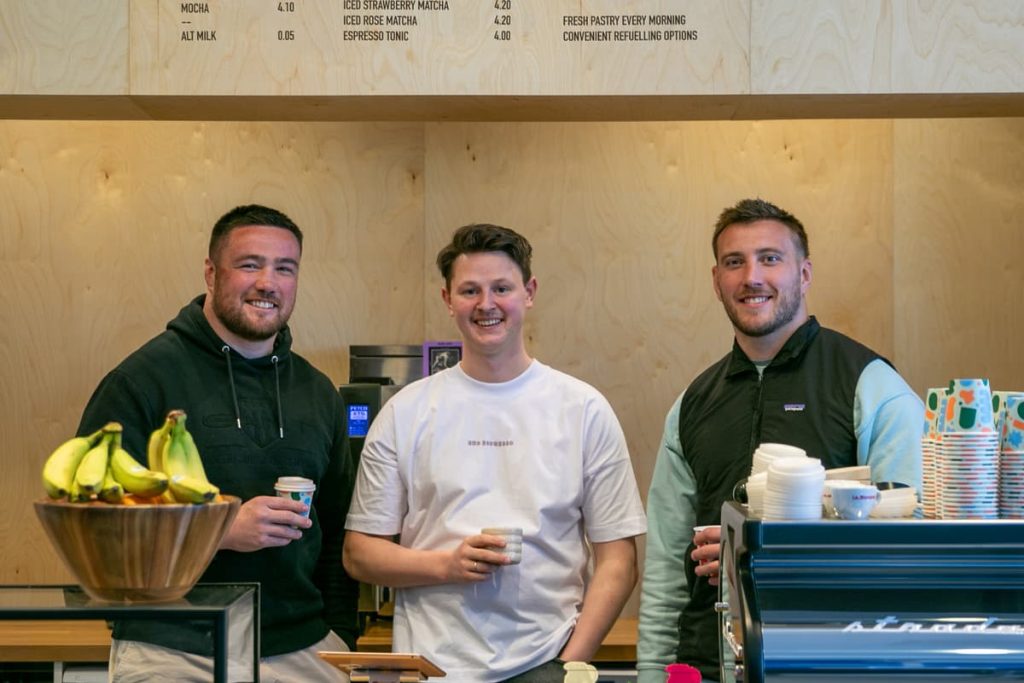The Intersection of Rugby and Coffee: A Deep Dive into Scotland’s Unique Culture
Rugby and coffee may seem like an unlikely pairing, but in Scotland, they are intertwined in more ways than one. This article explores the growing coffee culture among rugby players and coaches, showcasing how this beloved beverage fosters community, trust, and camaraderie in the world of sports.
The Charm of Coffee in Rugby Culture
Why Coffee?
For many, coffee is a daily ritual that kick-starts the morning. As avid coffee drinkers often note, the experience of seeking the perfect brew can be just as rewarding as the caffeine it provides. In Scotland, where rugby is a cherished sport, this energy-boosting beverage is rapidly becoming a staple among players and coaches alike.
As one local coffee enthusiast notes, "I don’t drink coffee at home; I prefer to indulge in the local coffee culture." This sentiment resonates with many who find comfort in community spaces like Edinburgh’s charming coffee shops.
Iconic Encounters
While strolling through the cobblestone streets of Edinburgh, it’s not uncommon to encounter professional rugby players lining up for their morning cups. For instance, spotting the All Blacks, New Zealand’s formidable national team, at a local cafe leaves a lasting impression. Over time, such sightings blur the lines between everyday life and the elite world of rugby, raising the question: what is it about coffee that resonates with these athletic giants?
The Role of Coffee in Team Dynamics
Building Connections with Coffee
John Dalziel, Scotland’s Forwards Coach and co-founder of Distrikt Coffee, emphasizes how coffee serves as a crucial bonding experience among team members. Historically, rugby teams would gather over pints after matches; however, as the culture evolves, coffee is becoming the go-to drink for healthier interactions. Teams now enjoy jugs of foamy beer on occasion, but coffee has carved a vital space for pre- or post-training discussions.
“The squad needs a safety net — a support system to rely on when things go awry,” explains Dalziel. Establishing these bonds is essential for fostering a culture of trust and teamwork.
The Psychology of Coffee in Sports
Coffee also plays a part in performance psychology, an ever-growing field that links mental wellness with athletic success. Many high-performance athletes use coffee not just for its stimulating effects, but as a way to unwind and connect with teammates. This mental health aspect cannot be overstated; engaging in light banter while sipping a latte can serve as an invaluable stress-reliever during intense training sessions.
The Evolving Coffee Scene in Scotland
From Players to Entrepreneurs
The burgeoning coffee scene in Scotland is not limited to just enjoying a cup—many players are venturing into coffee businesses themselves. Craig Jackson, head coach of Stirling County RFC, partnered with Dalziel to co-found Distrikt Coffee, which has its roots in the quaint town of Melrose. This establishment reflects the regional identities of rugby and the geographical influences on the coffee blends they offer.
Innovative Ventures
Various coffee enterprises have emerged among rugby players. For example, Edinburgh Rugby fly-half Cammy Scott and his friend Ethan McVicker launched Ramblin Roast, a mobile coffee trailer that connects them with fans and the larger community. Such ventures serve not only as side businesses but also as platforms for social engagement beyond the rugby field.
Local Coffee Culture: A Community Builder
Connection Cafe
In a collaborative effort, Cairngorm Coffee partnered with the Scottish Rugby Union to create “Connection Cafe” within the squad’s training camp. This initiative allows players and coaches to engage in casual conversations away from the pressure of the pitch, contributing to the overall team morale.
Personal Stories in Coffee
Take, for instance, the story of the Fagerson brothers—Matt and Zander—who co-own Zone.One, a freshly opened cafe at the University of St Andrews. This vibrant establishment has quickly transformed into a hub for the local community, showcasing the brothers’ passion for coffee and their commitment to fostering relationships beyond sports.
Coffee and Performance: The Science Behind the Brew
Studies reveal that caffeine can provide tangible benefits for high-performance athletes, enhancing alertness and power output. Pre-game rituals now frequently include a quick espresso or caffeine-infused gummies. As Zander Fagerson aptly puts it, understanding what motivates your teammates can transform how one interacts with the squad during critical moments in the game.
The Future of Coffee in Rugby
As rugby continues to grow in popularity, so too does the coffee culture surrounding it. The casual, friendly environment of coffee shops provides a stark contrast to the competitive atmosphere of the pitch, allowing players and fans to build relationships that transcend the game itself.
A Lasting Legacy
In closing, the story of coffee’s bond with rugby in Scotland is one of friendship, community, and connection. As players sip their brews while discussing tactics and strategies, they are simultaneously crafting a lasting legacy that ties together the spirit of sports and the warmth of community.
To learn more about Scotland’s coffee scene or the rugby teams making waves, explore Scottish Rugby for updates and stories that highlight this unique intersection.
By weaving together the rich narratives of coffee and rugby, we uncover a tapestry of experiences that reminds us that at the heart of sports lies not just the struggle for victory, but the relationships built along the way. Whether you’re a player, coach, or spectator, next time you sip that perfect cup of coffee, know that you’re part of a larger story. The combination of these two beloved passions creates a community that celebrates both sport and connection in equal measure.





